MODALS: सहायक क्रियाएँ
Modals are also called auxiliary verbs or helping verbs such as can, could, will ,would, etc which are used with the main verb to form a sentence and express ideas. They generally talk about possibility, obligation, permission, desire, request ,duty, etc.
मोडल को सहायक क्रिया जैसे कैन, विल आदि भी कहा जाता है, जिसका उपयोग वाक्य बनाने और विचारों को व्यक्त करने के लिए मुख्य क्रिया के साथ किया जाता है। वे आम तौर पर संभावना, दायित्व, अनुमति, इच्छा, अनुरोध, कर्तव्य आदि के बारे में बात करते हैं।
Examples:
She can speak English.
वह अंग्रेजी बोल सकती है।
You must go.
तुम्हे जरूर जाना चाहिए।
I should call her.
मुझे उसे फोन करना चाहिए।
Could you please help me?
क्या आप मेरी मदद कर सकते हैं?
He must be at the office now.
वह अब कार्यालय में होना चाहिए।
I would like to meet her.
मैं उससे मिलना चाहूंगा।
Characteristics of Modals:
मॉडल के लक्षण:
Following are some of the characteristics of modal verbs:
मोडल क्रियाओं की कुछ विशेषताएं निम्नलिखित हैं:
- When used with singular or plural subjects they do not change their form.
जब एकवचन या बहुवचन विषय के साथ प्रयोग किया जाता है तो वे अपना रूप नहीं बदलते हैं।
He will come soon.
वह जल्द ही आएंगे।
They will come soon.
वे जल्द ही आएंगे।
- Modal verbs have no “s” form with either singular or plural subject.
मोडल क्रियाओं का एकवचन या बहुवचन विषय के साथ कोई “s” रूप नहीं होता है।
They wills eat dinner.(They will eat dinner)
वे रात का खाना खायेंगे।(वे रात का खाना खायेंगे)
She wills eat dinner.(She will eat dinner)
वह रात का खाना खाएगी।(वह रात का खाना खाएगी)
- Modal verbs are not followed by Present Participle.
वर्तमान कालिक विशेषण द्वारा मोडल क्रियाओं का पालन नहीं किया जाता है।
He will going to London.
वह लंदन जाएंगे।
I shall eating dinner.
मैं रात का खाना खाऊंगा।
- Modal verbs are also not followed by Past Participle.
पिछले कृदंत द्वारा मोडल क्रियाओं का भी पालन नहीं किया जाता है।
He will arrived soon.
वह जल्द ही आ जाएगा।
They will brought flowers.
वे फूल लाएंगे।
- Modal Verbs don’t have an infinitive form. They are followed by a simple verb without using the word “to”.
Modal Verbs का infinitive रूप नहीं होता है। उनके बाद “to” शब्द का उपयोग किए बिना एक सरल क्रिया होती है।
He can drive a car.
वह कार चला सकता है।
I should go there.
मुझे वहाँ जाना चाहिए।
You must obey your elders.
आपको अपने बड़ों की बात माननी चाहिए।
But there are exceptions too such as ought to, have to, and used to.
लेकिन कुछ अपवाद भी हैं जैसे चाहिए, करना चाहिए और करना चाहिए।
We ought to listen to him.
हमें उसकी बात सुननी चाहिए।
He used to stay nearby.
पास ही रहता था।
You have to go to the market.
आपको बाजार जाना है।
- Modal Verbs cannot be used with other modal verbs.
मोडल क्रियाओं का उपयोग अन्य मोडल क्रियाओं के साथ नहीं किया जा सकता है।
You should must go there.
आपको वहां जरूर जाना चाहिए।
I can should do this.
मुझे यह करना चाहिए।
- Modal Verbs should be used with an action verb in a sentence as it cannot be used alone.
एक वाक्य में क्रिया क्रिया के साथ मोडल क्रियाओं का उपयोग किया जाना चाहिए क्योंकि इसका उपयोग अकेले नहीं किया जा सकता है।
The work would two hours.
काम दो घंटे का होगा।
The work would take two hours(Right usage)
काम में दो घंटे लगेंगे (सही उपयोग)
- We use modals on their own when the main verb be understood.
जब मुख्य क्रिया को समझा जाता है तो हम अपने आप मोडल का उपयोग करते हैं।
He could be sleeping.
वह सो रहा होगा।
She could be eating.
वह खा रही होगी।
They must be coming.
वे जरूर आ रहे होंगे।
- Modal Verbs always come after action verbs in a sentence.
मोडल वर्ब्स हमेशा एक वाक्य में क्रिया क्रियाओं के बाद आते हैं।
He can cook Italian food.
वह इटैलियन खाना बना सकता है।
I must ask advice from her.
मुझे उससे सलाह लेनी चाहिए।
I would hate to lie to her.
मुझे उससे झूठ बोलने से नफरत होगी।
- In interrogative sentence modal verbs appear before the subject.
मोडल वर्ब्स हमेशा एक वाक्य में क्रिया क्रियाओं के बाद आते हैं।
Will you help me finish my homework?
क्या आप मेरा होमवर्क पूरा करने में मेरी मदद करेंगे?
Could you please lend me some money?
क्या आप कृपया मुझे कुछ पैसे उधार दे सकते हैं?
- Modal Verbs are used as question tags that are turning a statement into a question.
Modal Verbs का उपयोग प्रश्न टैग के रूप में किया जाता है जो किसी कथन को प्रश्न में बदल रहा है।
She would like some chocolate, wouldn’t she?
उसे कुछ चॉकलेट चाहिए, है ना?
It shouldn’t be kept at home, should it?
इसे घर में नहीं रखना चाहिए ना?
Contractions:
संकुचन:
Contractions are shortened forms of helping verbs:
संकुचन सहायक क्रियाओं के संक्षिप्त रूप हैं:
Following are some of the contractions of Modals:
मोडल के कुछ संकुचन निम्नलिखित हैं:
We could not read the letter.- We couldn’t read the letter.
हम चिट्ठी नहीं पढ़ सके।- हम चिट्ठी नहीं पढ़ सके।
She should not argue with her parents.- She shouldn’t argue with her parents.
उसे अपने माता-पिता से बहस नहीं करनी चाहिए।- उसे अपने माता-पिता से बहस नहीं करनी चाहिए।
He may not come tomorrow.-He mayn’t come tomorrow.
हो सकता है वह कल न आए।हो सकता है वह कल न आए।
We ought not to do anything wrong.- We oughtn’t to do anything wrong.
हमें कुछ भी गलत नहीं करना चाहिए।हमें कुछ भी गलत नहीं करना चाहिए।
They would not go to the market.- They wouldn’t go to the market.
वे बाज़ार नहीं जाते थे।वे बाज़ार नहीं जाते थे।
WH questions with modals:
मोडल के साथ WH प्रश्न:
- Whom should I talk to?
मुझे किससे बात करनी चाहिए?
You should talk to your mother.
आपको अपनी मां से बात करनी चाहिए।
- How shall we go back home?
हम घर वापस कैसे जाएंगे?
We shall go back home walking.
हम पैदल चलकर घर लौटेंगे।
- Who could lend me some money?
कौन मुझे कुछ पैसे उधार दे सकता था?
Jane your friend could lend you some money.
जेन आपका दोस्त आपको कुछ पैसे उधार दे सकता है।
- When would they go to the park?
वे पार्क में कब जाएंगे?
They would go to the park by 7 pm.
वे शाम 7 बजे तक पार्क में चले जाते थे।
- Where can she leave the box?
वह बक्सा कहाँ छोड़ सकती है?
She can leave the box at my place.
वह बक्सा कहाँ छोड़ सकती है?
Exercise:
Complete the following with the correct modal.
निम्नलिखित को सही मोडल से पूरा करें।
- You (_____) smoke in a hospital.
आप (_____) अस्पताल में धूम्रपान करते हैं।
- One (_____) stop when the traffic lights are red.
ट्रैफिक लाइट लाल होने पर एक (_____) रुकें।
- We (_____) talk rudely with others.
हम ( ) दूसरों से बदतमीजी से बात करते हैं।
- You (_____) buy vegetables today.
आप (_____) आज ही सब्जियां खरीदें।
- Please take an umbrella. It (_____) rain.
. कृपया एक छाता लें। वर्षा (_____)
- She (_____) to teach in a school.
वह (_____) किसी विद्यालय में पढ़ाती है ।





0 responses on "MODALS from Hindi to English Part 1 (Introduction)"